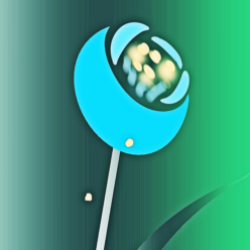住の江の 岸による波 よるさへや 夢の通ひ路(ぢ) 人目(ひとめ)よくらむ 藤原敏行朝臣 (小倉百人一首 18番 『古今集』恋・559)
和歌の世界観では、
「夢に人が現れるのは、相手が自分を想っているから」
だったらしく、現代でも使われる言葉
「夢枕に立つ」
は、それと同じ感性・発想によるのだろう。
魂・精霊への古代人の自然な信仰にも通じる、幻想的な夢への思い・捉え方かもしれない。
夜波(寄る波)と夢は、親和性が高いイメージ。
「夢の通ひ路」は詩的で、現代にも通じる表現(演歌的?)
I went out to the hazel wood, Because a fire was in my head, And cut and peeled a hazel wand, And hooked a berry to a thread; And when white moths were on the wing, And moth-like stars were flickering out, I dropped the berry in a stream And caught a little silver trout. When I had laid it on the floor I went to blow the fire aflame, But something rustled on the floor, And some one called me by my name: It had become a glimmering girl With apple blossom in her hair Who called me by my name and ran And faded through the brightening air. Though I am old with wandering Through hollow lands and hilly lands, I will find out where she has gone, And kiss her lips and take her hands; And walk among long dappled grass, And pluck till time and times are done The silver apples of the moon, The golden apples of the sun. ― The Song of Wandering Aengus― (William Butler Yeats,1899)
アイルランドの詩人イェイツの
「彷徨うアーンガスの歌」
にも夢の女性(姿をくらます)が登場するが、
その依り代は小川で釣った銀の魚。
水辺(岸に寄る波)で起きる
夢(の女性)との交流イメージは、
古今東西(平安前期和歌、近代の英詩)にわたり
詩人達に愛されたのだろうか。
( 2022.10.20~22 Twitter より )
カワヒラコ、夢虫、蚕サン – あかり窓 (memoru-merumo.com)
紫之(むらさきの) – あかり窓 (memoru-merumo.com)
住の江の岸に(Bing Image Creator) – レモン水 (ginmuru-meru.com)
風の音にぞ(Bing Image Creator) – ぶるーまーぶる (fairy-scope.com)

